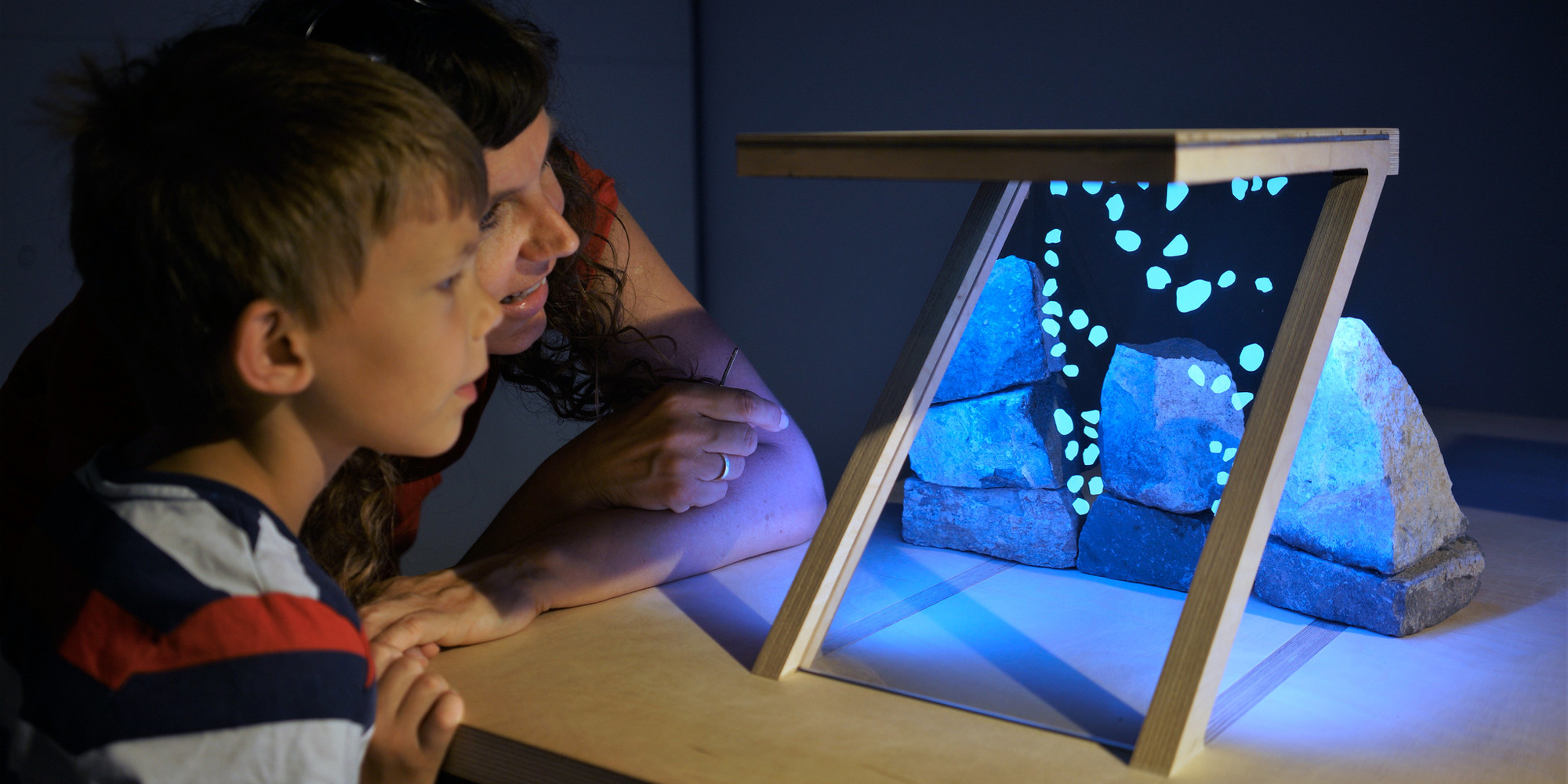Family Days and Holiday Program
press release / PDF
photos Best-Of Ars Electronica Center / Flickr
Ars Electronica Blog
(Linz, 15.12.2019) Controlling, training or programming robots, trying to trick artificial intelligence or composing your own personal Christmas song: at the Family Days on December 21 and 22, visitors can gain exciting insights into various exhibitions and thematic areas of the Ars Electronica Center. In the course of the holiday program on January 2 and 3, visitors will be able to invent fantastic body extensions or discover fascinating microorganisms such as springtails or tardigrades in moss under the microscope.
Speaking of tardigrades, a lovingly illustrated children’s book accompanies the tardigrade Tardi on his adventurous journey through the Ars Electronica Center – an ideal Christmas present for children. Whether you’re a loyal visitor to Deep Space LIVE or want to get to know the Ars Electronica Center in all its facets, we’d also love to recommend annual tickets or a photo book.
An overview of the Family Days program:
Family Tour: Where is Tardi?
SAT 21.12. and SUN 22.12.2019 / 11:30 a.m., 2:30 p.m. and 4:00 p.m.
Join the Family Tour when the search for the tiny little tardigrade Tardi turns into an adventure trip through the entire Ars Electronica Center.
Deep Space: Tardi’s World
SAT 21.12. and SUN 22.12.2019 / 12:30 p.m. and 15:30 p.m.
Diving into the world of the tardigrade Tardi is the motto of Deep Space 8K. Visitors hear interesting facts about the tiny survival artists and learn that they can survive not only in the eternal ice, but even in outer space.
Open Workshop: Machine Clever
SAT 21.12.2019 / 10:30 a.m. – 2 p.m.
This workshop is all about Artificial Intelligence. But what does Artificial Intelligence actually mean and what can it accomplish? Here, algorithms are put to the test and participants can try to outsmart them.
Open Workshop: Circus Robotics
SAT 21.12.2019 / 2 p.m. – 4 p.m.
The Machine Learning Studio is a busy place, with lots of machines romping around or dancing. But that’s not all, robots can also be built, trained or controlled here. Ring free for the circus Robotikus.
Open Workshop: Ding Dong Christmas Song!
SUN 22.12.2019 / 2 p.m. – 5 p.m.
“Last Christmas”, “Feliz Navidad” or “Do They Know it’s Christmas” – every year before Christmas there is no escaping the same songs. But if you’re interested in experimenting, at the Ars Electronica Center you can get a variety of sounds from Christmas objects, which will be transformed into your own song in the in-house Open Soundstudio.
The holiday program at a glance:
A lot going on in the Moos (for children from 6 to 10 years)
THU 2.1.2020 / 09:30 a.m. – 11:30 a.m.
Mosses play an important role in the ecosystem in many ways: they store several times their weight in water when it rains, can grow on barren soils or bare rocks and are the habitat for countless small animals such as mites, springtails, tardigrades, spiders, gnat larvae, beetles and many others. Many of them cannot be seen with the naked eye, but under the microscope the moss suddenly comes to life.
From Hardware to Soft Tissue (for children 12 years and older)
FRI 3.1.2020 / 09:30 a.m. – 11:30 a.m.
This workshop deals with so-called soft robotics, robotic components that consist of soft, adaptable materials instead of solid components. These soft robotics can be used for prostheses or body extensions. The participants are invited to let their imagination play, to invent body extensions and to build them at the same time. Would you like some wings perhaps?
Topic Artificial Intelligence
Ars Electronica then enters the new year with full power. From mid-January to early February, Tuesday 14.1.to Sunday 2.2.2020, the Ars Electronica Center will be devoted to the topic of “Artificial Intelligence – the Revolution Behind the Hype” with guided tours, lectures and workshops.
Photo:
Mirage et Miracles / photocredit: Ars Electronica – Robert Bauernhansl / Printversion
Photo:
A lot going on in the moss / photocredit: Ars Electronica – Robert Bauernhansl / Printversion
Photo:
Machine Learning Studio / photo: Ars Electronica – Robert Bauernhansl / Printversion
